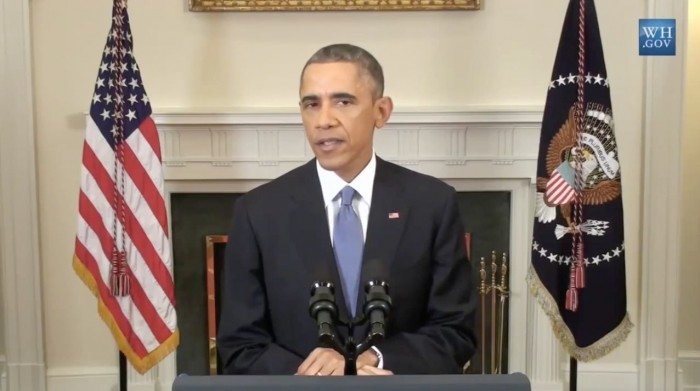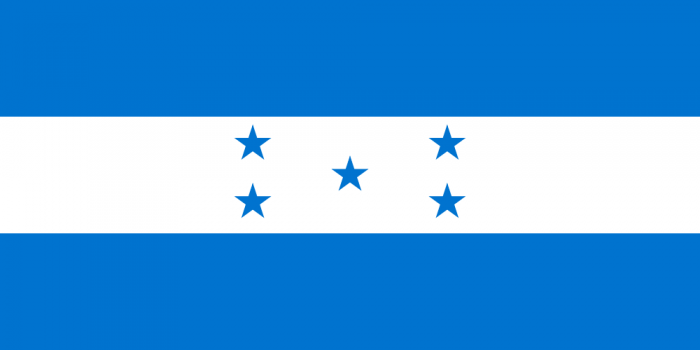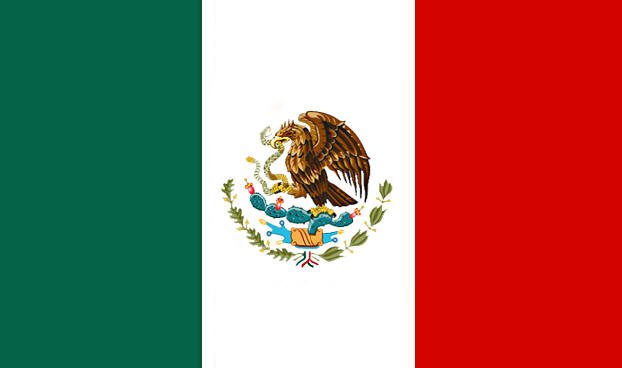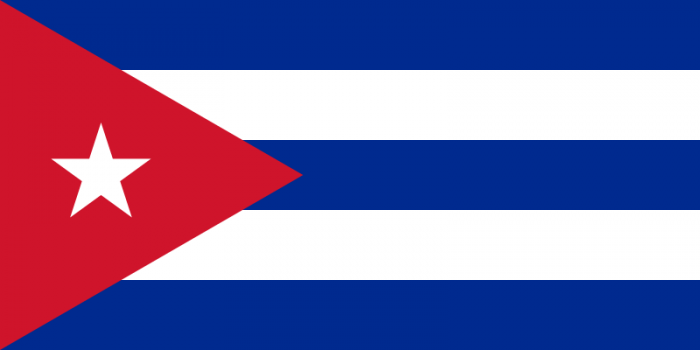Barack Obama will leave a complicated foreign policy when it comes to Latin America. At first, he promised change, hoping to provide a mutual respect that evaded the United States and countries in the region for decades. After eight years in office, though, Obama has proved that rhetoric does nothing but expose inaction.
While a lot can also be written about countries like Venezuela and Brazil (even Bolivia, Colombia and Argentina), I want to focus on three countries (Honduras, Mexico and Cuba) since they exemplify Obama’s mixed (and at times, tragic) results. In Honduras, Obama and then-Secretary of State Hillary Clinton (2009-2013) created an environment where violence is accepted. In México, Obama proved that our relationship with our southern neighbor relies on our willingness to remain indifferent to the corruption and violence, only to further our own strategic interests. And finally in Cuba, Obama proved that former adversaries provide fresh opportunities for the continued spread of “American exceptionalism.”
Obama and his policies helped to shape relationships with Honduras, México and Cuba. However, in the long run, such policies ended up doing more harm than good.
Honduras
The start of the tumultuous climate occurred in 2009, with the forced removal of José Manuel Zelaya, the former president of Honduras. The coup d’état was administered by the Honduran military after Zelaya had insisted on a constitutional referendum, a political risk deemed unconstitutional by the nation’s Supreme Court. Regional condemnation was immediate as the Organization of America States (OAS) demanded the “immediate, safe and unconditional return of President José Manuel Zelaya…to his constitutional functions,” and suspended the membership of Honduras to the organization. The response from the Obama administration, however, was lackluster and complacent.
President Obama denounced the events as “not legal,” and was concerned with the aftermath, where military coups might be seen as “a means of political transition rather than democratic elections.” In essence, there was a reluctance to condemn the events. Secretary of State Clinton (2009-2013) echoed such sentiment, and referenced cooperation with the OAS to “fashion a strong consensus condemning the detention and expulsion of President Zelaya.” Clinton, however, did not demand the immediate re-installment of Zelaya as was expected.
Soon enough, Clinton was revealed as an implicit supporter of the coup. The Clinton State Department was reluctant to criticize and reprimand the opposition in Honduras, despite evidence that the military and politicians had acted in a preemptive fashion. Leaked correspondence from U.S. Ambassador to Honduras, Hugo Llorens, displayed a timid reaction to the multiple accusation levied, the actions were defined as “alleged, “fabricated” and pure “supposition.”
Clinton damaged prospects for peace in Honduras, and continued U.S. political initiatives that focused on narcotics and suppressing political dissidents. Honduras has become a focal point, and has received financial and tactical assistance to combat narcotrafficking in the region. Political repression became an afterthought. Clinton and the State Department militarized Honduras, and in the process provided justification for the rebirth of Honduran death squads.
The State Department has condemned human rights abuses committed in Honduras, but has not prevented such atrocities from being committed. Clinton has remained indifferent, but deserves blame for the horrendous conditions present in Honduras. The threat faced by environmental activists started with the polices advanced during Clinton’s tenure as Secretary of State. The extrajudicial slaughter of activists was justified in the eyes of the right-wing government, where, the death of Berta Cáceres was excused as a consequence for her own dissent, against well-intended government policies.
The Obama administration failed Honduras. It is to blame for the violence. It is to blame for the refugee crisis that it refuses to acknowledge with little else but empty rhetoric, and even emptier promises.
Mexico
The Merida Initiative is a diplomatic and military aid package designed to “disrupt organized criminal groups, institutionalize reforms to sustain the rule of law and support for human rights,” and has shaped the most significant financial aspects of our shared relationship with México. In 2009, the 111th Congress approved significant aid that helped the Obama administration continue counter-narcotics policies of administrations past.
Felipe Calderón (2006-2012), whose hands remain stained with the blood of tens of thousands of innocent Mexicans, obliged, accepted the assistance, and continued a self-initiated conflict. México has amassed a treacherous human rights record, where increased instances of torture, disappearances and extrajudicial killings, have defined México’s international image. The Obama administration accepted the human rights abuses, the State Department pushed for the extension of the Mérida Initiative, despite the obvious human rights violations.
The Clinton State Department had a sordid legacy in México, as depicted in a piece from Foreign Policy in Focus (FPIF). Multiple cables from officials provide examples of official corruption, even as officials boasted of sophisticated intelligence cooperation (Cables from 2009 and 2010, as cited in FPIF). State officials were aware of the rampant violence. Tt was communicated by officials, yet, the State Department refused to confront the abuses committed by Calderón.
The Obama administration ignored human rights abuses committed as the New York Times reported in 2011, by Mexico’s armed forces. Human rights groups openly criticized the involvement of the Mexican military in drug cases, a valid criticism, the Obama administration has done nothing, but cut $5 million dollars in aid to México. The government of Mexico has defended these actions, and has continued to use the military force, even under the administration of Enrique Peña Nieto.
Under Peña Nieto, the extrajudicial killings committed by the Mexican army continued, as overall violence has increased alongside it. The United States (and by obvious extension, the Obama administration) reacted in a minimal fashion, providing nothing but security assistance. Human rights organizations in July 2016 wrote a letter to Secretary of State John Kerry (2013-2017) asking for the State Department to assess the human rights requirements of the Merida Initiative, citing numerous examples of violations for consideration.
The United States has funded, and contributed through association, to the rise in corruption and violence. The Obama administration has, in effect, propped up Mexico’s corrupt drug war. It has forced Peña Nieto to govern México as a servile U.S. client state. It has frustrated countless people, the needless violence and corruption, created from a blank check from Washington, to appeal to the interests of the United States. As was written in Foreign Policy, “the blank check that top Mexican officials receive from the U.S. government against the scrutiny of civil society on both sides of the border has allowed the situation to spin entirely out of control.”
Cuba
On December 17, 2014, President Obama and Raúl Castro announced that relations between the United States and Cuba were to be restored. The diplomatic overtures made, had evaded the capabilities of previous presidential administrations.
The decision came after more than a year of talks that culminated in the exchange of prisoners, and as such, the renewal of economic and political ties commenced for the first time in decades. Secretary of State John Kerry presided over the re-opening of the United States Embassy in Havana with much fanfare, as diplomatic relations resumed in a somewhat official capacity. The move was not popular, to many it was a ceremony that celebrated our inclination to renew a relationship with what many call a repressive, and authoritarian regime.
In addition, last week, the Obama administration ended the ‘wet-foot, dry-foot’ policy, instituted by President Bill Clinton in 1995. In a statement, the Obama administration stated that the repeal, was done to prevent special treatment of Cuban immigrants, and to prove the commitment of the United States in regards to normalizing relations with the Castro regime.”
Demanding democratic principles, and a respect for the rule of law from Cuba has characterized the opposition. Nonetheless, absent from such discussion were the effects on those who suffered under the Castro regime. According to the Washington Post, a major segment of the Cuban population supports renewed ties with the United States. However, such support was anchored to the belief that democratic principles, such as freedom of the press, free-speech, and free and fair elections, were to be instituted.
Uri Freidman, writing in the Atlantic, wrote of Rosa Maria Payá, “the daughter of Oswaldo Payá, a Cuban democracy activist who in 2012 was killed in a mysterious car crash.” Payá recognized the presence of the United States, however, she argued that “U.S. officials…should be talking to their Cuban counterparts not just about coffee sales and commercial flights, but also democratic reforms…that are advocated by Cubans.”
As Yoani Sánchez, the founder of Cuba’s first independent digital newspaper 14ymedio, stated, “with each symbolic chord Obama touches in the popular imagination, he assumes a responsibility.” High expectations were placed on Obama by the Cuban people, who expected “economic relief, the end of food shortages and improvements in the country’s infrastructure.” Obama, has delivered none of it, only speeches and symbolic gestures that capture the minds of the Cuban people and promise hope, yet deliver no change.
Payá and Sánchez offer legitimate concerns, how can the United States provide actual change, a change that results in the overthrow of an authoritarian regime? The Obama administration has proven that there was little regard for the actual well-being of the Cuban people, as it normalized yet another authoritarian figure in a pursuit for new, exploitable markets. Support for regimes that commit horrendous human rights abuses has become a signature for foreign policy in the United States. With Cold War-era tensions removed, Cuba became another nation-state that has enjoyed the undying gratitude of the United States for a willingness to placate to the whims of a free-market.
¡Hasta la victoria siempre! Por…el capitalismo? It appears so.
Eight Years: No Hope, Little Change
There was much promised by Obama in the beginning of his tenure in Washington, it was expected that he would bring about many sweeping changes, and for the sake of this piece, policies directed towards Latin America were also expected to change.
At the 5th Summit of the Americas (2009), held in Port Spain, Trinidad and Tobago, Obama expressed a new hope for relations with Latin America, promising “engagement based on mutual respect and common interests and shared values.” Now, it must be said no one expected the United States to reverse decades of policies overnight, however, what was expected was mutual respect.
The Obama administration showed that nothing had changed, despite providing multiple Latin American countries with declassified material of U.S. involvement in countless “dirty wars,” and repressive governments. Obama did not bring profound change to our relations with Latin America, the reopening of Cuba still maintained vestiges of good, old American exceptionalism.
Obama advocated renewed diplomatic relationships based on mutual respect and partnership, yet, it is difficult to do so when the “ideal version” of democracy is touted as the best, without consideration for alternatives. There was much to be desired, however, that is expected when the dominant power considers an entire region as nothing other than a “backyard.”
***
Nathaniel Santos Hernández is a graduate of the University of Maine, Orono, with a degree in Anthropology. You can follow him on Twitter @saint_nate12.






